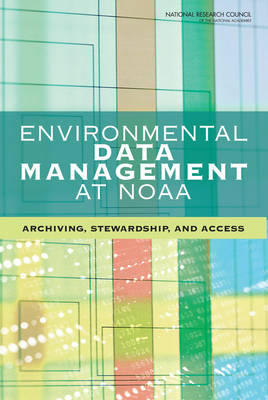The National Oceanic and Atmospheric Administration (NOAA) collects, manages, and disseminates a wide range of climate, weather, ecosystem and other environmental data that are used by scientists, engineers, resource managers, policy makers, and others in the United States and around the world. The increasing volume and diversity of NOAA's data holdings - which include everything from satellite images of clouds to the stomach contents of fish - and a large number of users present NOAA with substantial data management challenges. NOAA asked the National Research Council to help identify the observations, model output, and other environmental information that must be preserved in perpetuity and made readily accessible, as opposed to data with more limited storage lifetime and accessibility requirements. This report offers nine general principles for effective environmental data management, along with a number of more specific guidelines and examples that explain and illustrate how these principles could be applied at NOAA.
- ISBN10 0309112095
- ISBN13 9780309112093
- Publish Date 16 December 2007 (first published 1 January 2007)
- Publish Status Active
- Publish Country US
- Imprint National Academies Press
- Format Paperback
- Pages 130
- Language English
